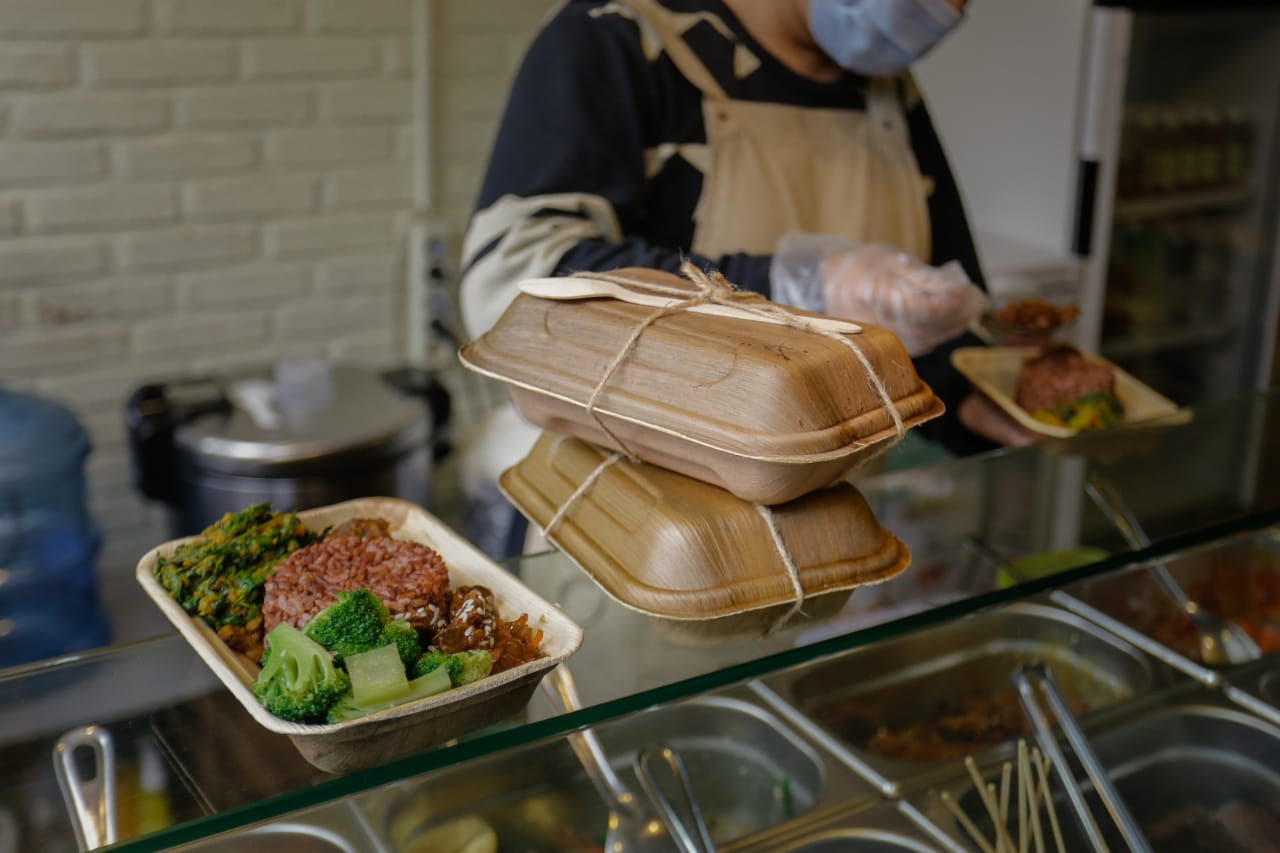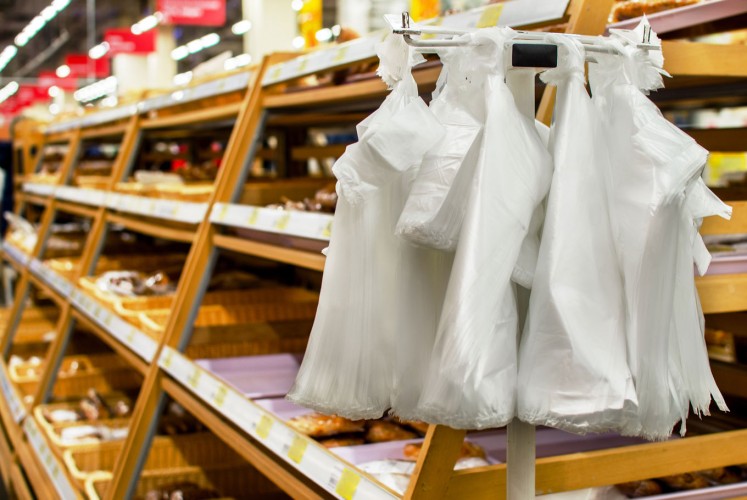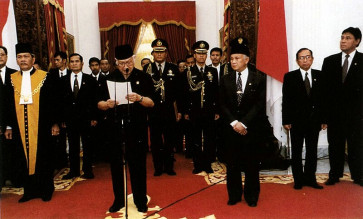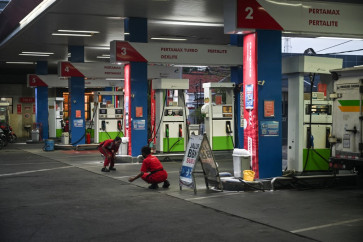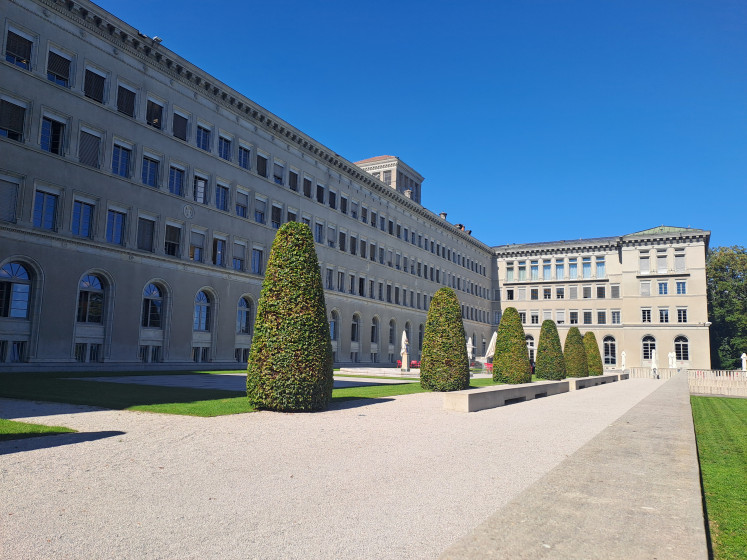Popular Reads
Top Results
Can't find what you're looking for?
View all search resultsPopular Reads
Top Results
Can't find what you're looking for?
View all search resultsGreen packaging industry gains momentum amid plastic ban, e-commerce shift
EnviGo’s business grew two- to threefold from 2019 to 2020
Change text size
Gift Premium Articles
to Anyone
E
nvironmentally friendly packaging is expected to continue gaining popularity in urban areas in the short to medium term after enjoying a surge in demand last year, prompted by Jakarta’s ban on single-use plastics and a general shift to online shopping among Indonesian consumers.
Read also: Food deliveries, online game purchases up as people stay at home during COVID-19 pandemic
Both suppliers and buyers of eco-friendly packaging told The Jakarta Post that demand for the products would likely grow as Jakarta enforced full compliance with the ban and demand for food delivery services continued to rise amid the ongoing mobility restrictions.
The country’s wealthiest province enacted the ban in July 2020 a few years after similar regulations were enacted in other major cities like Denpasar in Bali and Bogor in West Java. But despite the ban, many traders at traditional markets in the nation’s capital continue to provide single-use plastic bags.
Read also: Jakarta’s ban on plastic bags still has holes
“[Demand] for sustainable packaging is rising, and this will be an attractive opportunity for investors,” Rengkuh Banyu Mahandar, the chief executive of biodegradable food container maker Plépah, told the Post on June 22.
The slowly increasing demand for eco-packaging is part of Indonesia’s greater trend in rising demand for green products, such as recycled packaging, good agricultural practices, natural dyeing and green financing.
Read also: For Indonesian enterprises, green is the new black
The eco-packaging trend particularly benefits Jakarta by slowing the accumulation of waste at the Bantar Gebang landfill in Bekasi, West Java. This is the end point of the capital’s waste disposal system, and has less than a year before it reaches maximum capacity.
Eco-friendly packaging supplier EnviGo noted that its business had grown two- to threefold between 2019 and 2020, prompted by rising demand in delivery services among e-commerce, food and beverage (F&B) and logistic companies.
The company supplies packaging to coffee chain Kopi Kenangan, e-commerce companies Tokopedia, JD.ID and Blibli and parcel shipping companies Ninja Express and AnterAja, among others.
“The price of our [oxo-biodegradable] plastic bags is similar to ordinary plastic bags, so its price is competitive and it is one of the most economical packaging solutions,” EnviGo founder Kevin Susanto told the Post on Thursday.
Oxo-biodegradable plastics, or oxo-bio plastics for short, take two years to break down when exposed to sunlight and soil, a fraction of the 100 to 500 years needed for regular low-density polyethylene (LDPE) plastic bags to degrade, Kevin said.
Fortune Business Insights reported that the Asia-Pacific green packaging market stood at US$99.46 billion last year, contributing 38.5 percent of the $258.35 billion global market.
The region is forecast to remain the world’s largest market for green packaging from 2020 to at least 2028. Meanwhile, the F&B segment is expected to be the largest contributor to the global green packaging market, with growth reaching $385.34 billion over the same period.
One company to adopt sustainable packaging during COVID-19 is Mangkokku, which did so after observing that food deliveries made up 90 percent of its orders.
The rice bowl culinary start-up initially used regular plastics from its establishment in 2019, but switched to reusable spunbond bags last year following Jakarta’s ban on single-use plastics.
Mangkokku CEO Randy Julius Kartadinata said that some customers resisted the shift to spunbond bags due to the additional fee of Rp 2,000 (14 US cents) per bag.
“There is a price to pay for this shift ... whether or not consumers are willing to pay is another story,” said Randy.
He added that Mangkokku outlets had also started using paper bowls and planned to replace its plastic cutlery with those made from wood or other environmentally friendly materials.
Rengkuh made a similar observation, saying that Plépah found new customers in Jakarta and Bali following the local enactment of the plastics ban. The company has also worked with GoFood to provide eco-friendly food packaging for merchants of tech unicorn Gojek’s food delivery arm.
He also noted, however, that some restaurants had put their orders on hold because their businesses had been hit hard by the pandemic.
Plépah makes food containers and plates out of areca palm midribs, considered agricultural waste, as an alternative to styrofoam. The eco-friendly containers degrade within a few weeks, compared to styrofoam containers that can take up to 1 million years.
However, Plépah’s food packaging products cost around Rp 5,000 apiece, compared to Rp 300 for a styrofoam food box, a cost that Rengkuh said was one of the reasons some buyers had postponed their orders.
Despite the hiccup, Rengkuh said the company would continue working with farmer cooperatives to look at using other agricultural waste products as packaging materials.
“Since food delivery is also on the rise during this pandemic, I think this is a good entry point for our company to raise funds,” he added.

